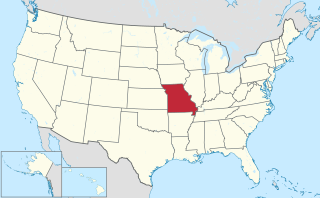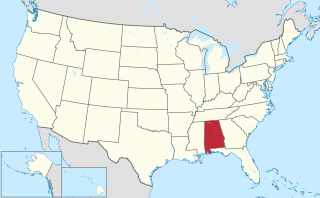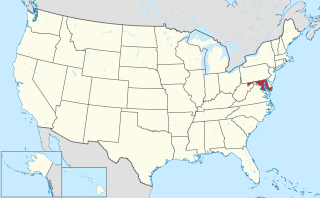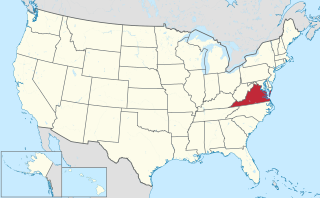
The tables below list the United States presidential elections in Missouri, ordered by year. Since 1904, Missouri has voted for the eventual winner of the presidential election with only four exceptions: 1956, 2008, 2012, and 2020. Missouri was historically viewed as a bellwether state, but the consecutive votes against the winning candidate in 2008 and 2012 introduced doubts about its continued status as a bellwether, and an 18.5-point Republican victory in 2016 indicated that it had become a safe red state.

Following is a table of United States presidential elections in Alabama, ordered by year. Since its admission to statehood in 1819, Alabama has participated in every U.S. presidential election except the election of 1864, during the American Civil War, when the state had seceded to join the Confederacy.

Following is a table of United States presidential elections in Delaware, ordered by year. Since its admission to statehood in 1787, Delaware has participated in every U.S. presidential election.

Following is a table of United States presidential elections in Georgia, ordered by year. Since its admission to statehood in 1788, Georgia has participated in every U.S. presidential election except the election of 1864, when it had seceded in the American Civil War.

Following is a table of United States presidential elections in Illinois, ordered by year. Since its admission to statehood in 1818, Illinois has participated in every U.S. presidential election.

Following is a table of United States presidential elections in Indiana, ordered by year. Since its admission to statehood in 1816, Indiana has participated in every U.S. presidential election.

Following is a table of United States presidential elections in Kentucky, ordered by year. Since its admission to statehood in 1792, Kentucky has participated in every U.S. presidential election. Prior to the election of 1792, Kentucky was part of Virginia, and residents of the area voted as part of that state.

Following is a table of United States presidential elections in Louisiana, ordered by year. Since its admission to statehood in 1812, Louisiana has participated in every U.S. presidential election except the election of 1864, during the American Civil War. At that time, Louisiana was controlled by the Union and held elections, but electors were not ultimately counted.

Following is a table of United States presidential elections in Maryland, ordered by year. Since its admission to statehood in 1788, Maryland has participated in every U.S. presidential election. Considered a bellwether state during the 20th century, only voting for the losing candidate three times during that century, Maryland has since become one of the most blue (Democratic) states, last voting for a Republican candidate in 1988.

Following is a table of United States presidential elections in Massachusetts, ordered by year. Since its admission to statehood in 1788, Massachusetts has participated in every U.S. presidential election.

Following is a table of the United States presidential elections in Mississippi, in chronological order by year. Since its admission to statehood in 1817, Mississippi has participated in every U.S. presidential election except the election of 1864, during the American Civil War, when the state had seceded to join the Confederacy, and the election of 1868, when the state was undergoing Reconstruction.

Following is a table of United States presidential elections in New Hampshire, ordered by year.

Following is a table of United States presidential elections in New Jersey, ordered by year. Since its admission to statehood in 1787, New Jersey has participated in every U.S. presidential election.

Following is a table of United States presidential elections in New York, ordered by year. Since its admission to statehood in 1788, New York has participated in every U.S. presidential election except the election of 1788–1789, when it failed to appoint its allotment of eight electors because of a deadlock in the state legislature.

Following is a table of United States presidential elections in North Carolina, ordered by year. Since its admission to statehood in 1789, North Carolina has participated in every U.S. presidential election except the election of 1864, during the American Civil War, when the state had seceded to join the Confederacy. North Carolina did not participate in the 1788–89 United States presidential election, as it did not ratify the Constitution of the United States until months after the end of that election and after George Washington had assumed office as President of the United States.

Following is a table of United States presidential elections in Rhode Island, ordered by year. Since its admission to statehood in 1790, Rhode Island has participated in every U.S. presidential election.

Following is a table of United States presidential elections in South Carolina, ordered by year. Since its admission to statehood in 1788, South Carolina has participated in every U.S. presidential election except the election of 1864 during the American Civil War, when the state had seceded to join the Confederacy.

Following is a table of United States presidential elections in Tennessee, ordered by year. Since its admission to statehood in 1796, Tennessee has participated in every U.S. presidential election except the election of 1864, during the American Civil War. At that time, Tennessee was controlled by the Union and held elections, but electors were not ultimately counted.

Following is a table of United States presidential elections in Vermont, ordered by year. Since its admission to statehood in 1791, Vermont has participated in every U.S. presidential election.

Following is a table of United States presidential elections in Virginia, ordered by year. Since its admission to statehood in 1788, Virginia has participated in every U.S. presidential election except the election of 1864 during the American Civil War, when the state had seceded to join the Confederacy, and the election of 1868, when the state was undergoing Reconstruction. As of 2022, it is the only state of the former Confederacy to vote reliably Democratic.




















